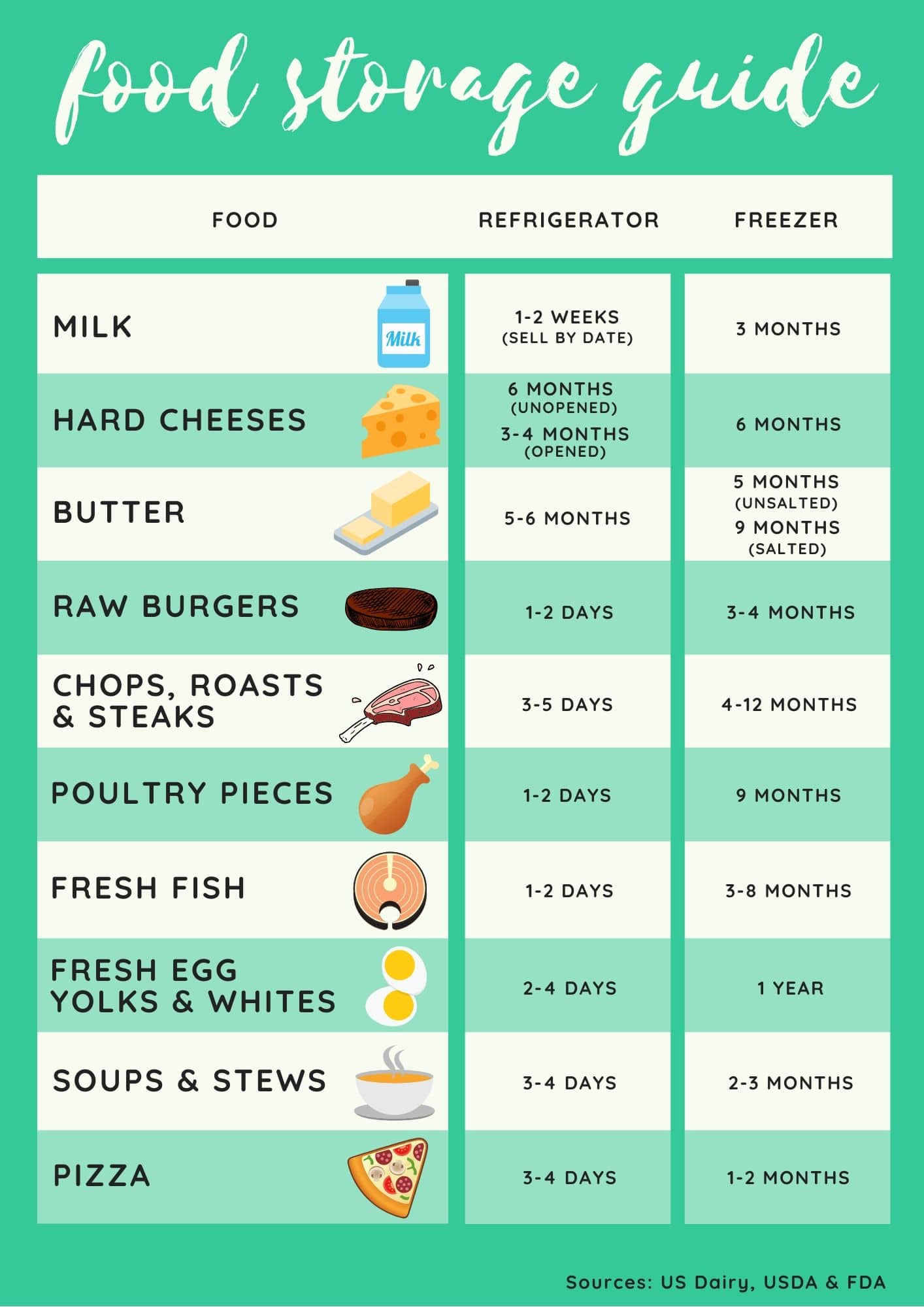Food storage guidelines come in handy when you buy extra groceries in order to make less frequent trips to the store or when you accidentally over purchase a few items. The freezer is at times underused for many of us when it comes to freezing foods that aren’t purchased from the frozen aisles in stores.
A perfect example of that is freezing milk, cheese, butter and eggs! When it comes to eggs, the USDA doesn’t recommend freezing them when they are in shells or hard cooked, however you can refrigerate raw yolks and whites for up to 2-4 days and freeze them for up to an entire year.
Dairy products like milk, cheese and butter can be frozen in order to be kept fresh for a longer period of time. Click here to learn more about freezing milk. For cheese, some softer cheeses like mozzarella can be frozen especially when shredded. Other cheeses, like aged Cheddar for example will become a bit too crumbly if frozen. You can also freeze shredded cheese before its expiration date, but be sure to allow it to thaw for at least 24 to 48 hours in the refrigerator before using it. If you have a blocks of cheese on the other hand, cut them into 1/2 pound blocks or smaller. You can wrap the blocks in plastic wrap or freezer bags, which will prevent the cheese from absorbing other flavors.
Our food storage guide gives you tips on how long you can freeze common items that you either buy at the store or make right at home.

DOWNLOAD OUR FOOD STORAGE GUIDE
One of our favorite freezing hacks is freezing herbs. We have all experienced herbs beginning to go bad in our refrigerators because we didn’t get a chance to use them all in our cooking. You can freeze fresh herbs as-is in airtight containers or freeze them by chopping them up and topping them off with a bit of water in ice cube trays for even longer lasting herbs.
Food waste is absolutely preventable if we stay aware of what we purchase and store and freeze items accordingly. When it comes to foods that aren’t recommended be frozen such as yogurt, make it a point to organize it by date within your refrigerator. Single-serve yogurts are great to stock up on to have as a go-to daily snack, which is why we store them in our refrigerator in order of its expiration date.
Simple tips to follow when storing food can really go a long way to prevent both food waste and too many trips to the grocery stores!
Use some commonly frozen foods such as chicken, fish or even egg whites and yolks to make some of these delicious recipes!


Blackened Fish Tostadas with Watermelon Salsa

